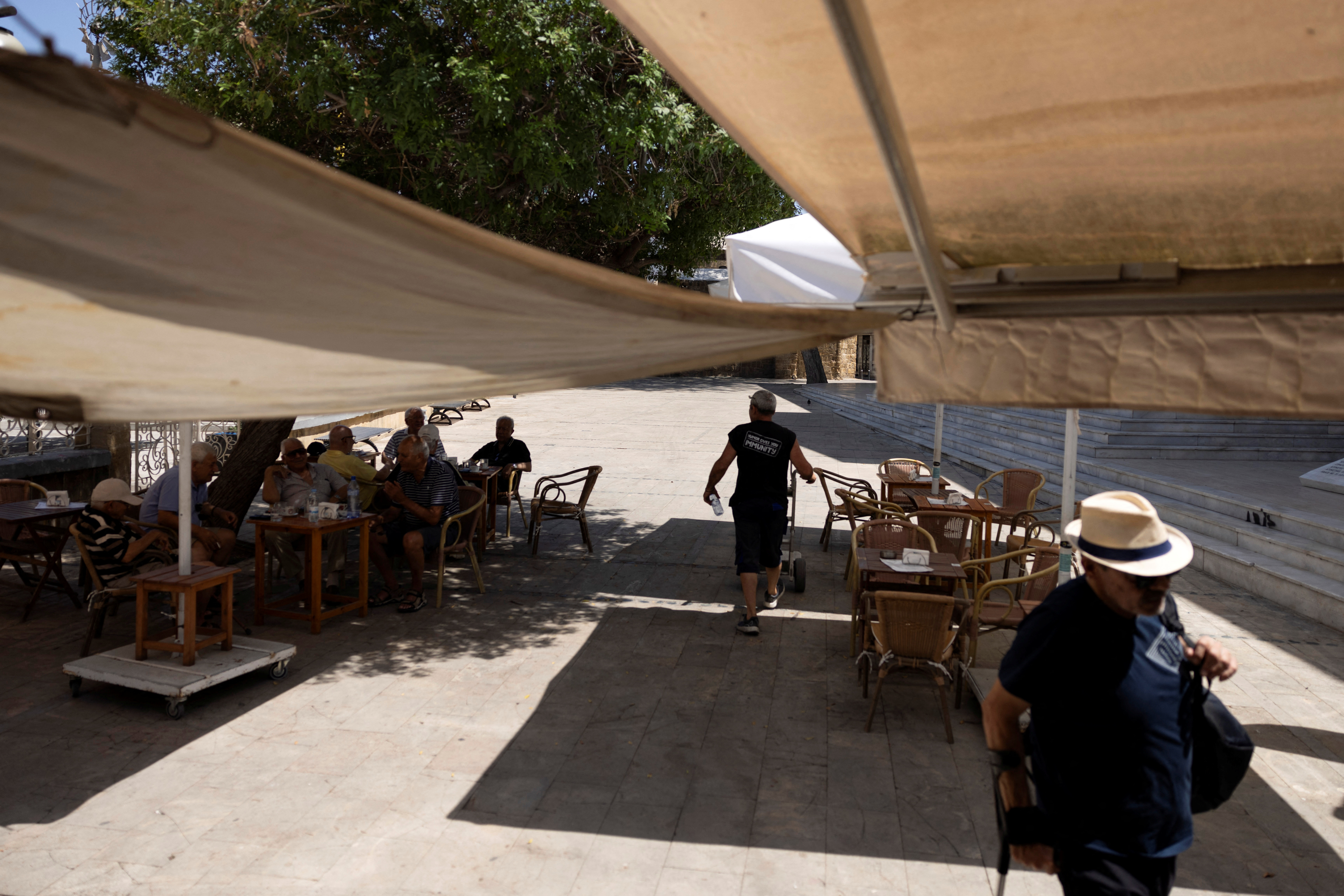Why pick on us? Cyprus perplexed by Hezbollah threats

By Yiannis Kourtoglou and Marinos Meletiou
NICOSIA (Reuters) -Cyprus reacted with incredulity on Thursday to warnings from Lebanon’s Hezbollah that the island could be dragged into conflict if tensions with Israel blew up into a fully-fledged war.
The EU member state closest to the Middle East, Cyprus was caught off guard by comments from Hezbollah chief Sayyed Hassan Nasrallah on Wednesday that the island could be a target if it permitted Israel to use its military facilities in the event of an attack on Lebanon.
“The Republic of Cyprus is in no way involved in war conflict,” Cypriot President Nikos Christodoulides responded, describing Nasrallah’s comments as “not pleasant”.
The EU also weighed in. “Any threats against our member state are threats against the EU,” a spokesperson said.
Lebanon’s government appeared to try to contain any possible fallout from Nasrallah’s comments.
Lebanese caretaker Prime Minister Najib Mikati contacted Christodoulides on Thursday to thank him for his measured diplomatic response, referring to Christodoulides as a “dear friend”, a Cypriot source said.
Foreign minister Abdallah Bou Habib also spoke to his Cypriot counterpart Constantinos Kombos to highlight Lebanon’s “continued reliance” on the role Cyprus has played in regional stability, according to a statement by Bou Habib’s office.
A Lebanese diplomatic source told Reuters that the two had spoken “to clarify matters” but did not elaborate on how Lebanese officials had specifically addressed Nasrallah’s threats.
Officials in Nicosia made clear they did not want to pursue the matter further. NATO member Greece, a key ally, said Cyprus and its people had its unwavering support.
“The threat of use of violence is a flagrant violation of the U.N. Charter,” it said on X.
NEUTRAL IN SEA OF CONFLICT
Cyprus has always viewed itself as above Middle Eastern politics and offered sanctuary to tens of thousands of Lebanese fleeing civil war in the 1970s and 80s.
It has lobbied its EU partners to offer Lebanon financial assistance, and recently set up a maritime corridor to dispatch humanitarian aid to famine-threatened Palestinians in Gaza.
“Cyprus is a credible enabler of stability, and an acknowledged regional hub for humanitarian operations, based on excellent relations with all the countries in the region,” said government spokesperson Konstantinos Letymbiotis.
But it also comes against the backdrop of improved Cyprus ties with Israel, and the more visible involvement of British sovereign bases on the island in military operations in Syria and more recently, Yemen. The Israeli air force is also known to conduct exercises in Cyprus’s airspace, and in recent years the two countries have conducted joint military drills.
Cypriots in the divided capital Nicosia said people had enough to deal with from the lingering complications of Turkey’s invasion of northern Cyprus in 1974 after a brief Greek-inspired coup.
“Last night when I heard about the news, yes, I was worried,” said Filios Christodoulou, 84.
Others were unfazed.
“We have nothing to do with this war,” Stella Patatini, 62, said. “On the contrary, we are helping peace in the region and assistance to the Palestinians so I feel safe in Cyprus.”
(Reporting by Michele Kambas, Marinos Meletiou and Yiannis Kourtoglou in Nicosia; Additional reporting by Maya Gebeily in Beirut; Writing by Michele Kambas; Editing by Alex Richardson, Alistair Bell and Andrew Heavens)








